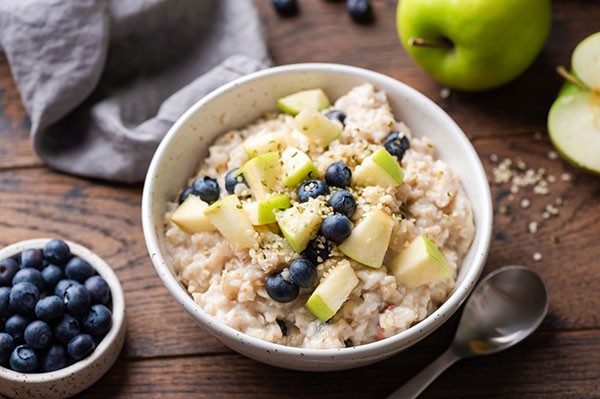Heartburn, a common symptom of gastroesophageal reflux disease (GERD), can be a painful and disruptive condition. Understanding What Foods To Avoid With Heartburn is a crucial step in managing GERD symptoms and improving your overall quality of life. This guide will provide you with the knowledge you need to make informed dietary choices and minimize heartburn triggers.
Identifying Heartburn Trigger Foods
While dietary recommendations for GERD have evolved, certain foods are consistently identified as potential triggers for acid reflux and heartburn. Eliminating or reducing these foods can significantly alleviate your symptoms. Keep in mind that individual sensitivities vary, so tracking your food intake and identifying your personal triggers is essential.
Here’s a breakdown of common foods to avoid or limit if you experience frequent heartburn:
-
High-Fat Foods: Fatty and fried foods, such as french fries, onion rings, and fatty cuts of meat, stay in the stomach longer, increasing the likelihood of stomach acid refluxing into the esophagus.
-
Spicy Foods: Chili peppers, hot sauces, and heavily spiced dishes can irritate the esophagus and worsen heartburn symptoms.
-
Citrus Fruits and Juices: Oranges, grapefruits, lemons, and limes are acidic and can irritate the esophageal lining.
-
Tomato-Based Products: Tomato sauces, ketchup, and other tomato-based products are also acidic and may trigger heartburn.
-
Chocolate: Chocolate contains caffeine and theobromine, which can relax the lower esophageal sphincter (LES) and allow stomach acid to flow back into the esophagus.
-
Caffeine: Coffee, tea, and caffeinated sodas can also relax the LES, leading to increased acid reflux.
-
Onions and Garlic: These pungent vegetables can trigger heartburn in some individuals.
-
Peppermint: Despite its soothing properties for some digestive issues, peppermint can relax the LES and worsen heartburn.
-
Carbonated Beverages: Sodas and sparkling water can increase stomach pressure and contribute to acid reflux.
-
Alcohol: Alcohol can irritate the esophagus and relax the LES, increasing the risk of heartburn.
 Bowl of oatmeal with blueberries and apple
Bowl of oatmeal with blueberries and apple
Best Foods for Heartburn Relief
Fortunately, many delicious and healthy foods can help ease or prevent heartburn symptoms. Incorporating these foods into your diet can make a significant difference in managing your GERD.
- Non-Citrus Fruits: Bananas, melons, apples, and pears are gentle on the stomach and less likely to trigger reflux.
- Vegetables: Most vegetables are low in acid and easy to digest. Try them raw or steamed for best results.
- Lean Meats: Grilled, baked, or broiled lean meats like chicken, turkey, and fish are good protein sources that won’t exacerbate heartburn.
- Whole Grains: Oatmeal, brown rice, quinoa, and whole-wheat bread are excellent sources of fiber and complex carbohydrates that can help absorb stomach acid.
- Healthy Fats: Unsaturated fats from sources like olive oil, avocados, nuts, and seeds are less likely to trigger heartburn than saturated and trans fats.
Lifestyle Changes for Heartburn Management
In addition to dietary modifications, certain lifestyle changes can significantly reduce heartburn frequency and severity:
- Eat Smaller, More Frequent Meals: Overeating can put pressure on the stomach and increase the risk of reflux. Eating smaller meals more often can help prevent this.
- Avoid Lying Down After Eating: Stay upright for at least three hours after meals to allow gravity to keep stomach acid in the stomach.
- Don’t Eat Before Bed: Avoid eating anything for at least three to four hours before bedtime.
- Maintain a Healthy Weight: Obesity can increase pressure on the stomach and contribute to acid reflux.
- Quit Smoking: Smoking weakens the LES and increases acid production.
- Elevate the Head of Your Bed: Raising the head of your bed by 6-8 inches can help prevent stomach acid from flowing back into the esophagus during sleep.
Tips for Identifying Your Personal Trigger Foods
Keeping a food diary is an excellent way to identify your specific heartburn triggers. Record everything you eat and drink, as well as any symptoms you experience. After a few weeks, you may begin to notice patterns and identify the foods that are most likely to cause you problems.
Once you’ve identified your trigger foods, try eliminating them from your diet one at a time to see if your symptoms improve. If you’re not sure whether a particular food is a trigger, you can try reintroducing it in small amounts and monitoring your reaction.
When to Seek Medical Advice
While dietary and lifestyle changes can often effectively manage heartburn, it’s essential to seek medical advice if your symptoms are severe, frequent, or persistent. A doctor can diagnose the underlying cause of your heartburn and recommend appropriate treatment options, such as medications or other therapies.
Heartburn can feel like a minor inconvenience, but continuous heartburn may be a sign of a more serious issue. It’s best to seek counsel from your doctor if you are unsure.
Conclusion
By understanding what foods to avoid with heartburn and making appropriate dietary and lifestyle changes, you can significantly reduce your symptoms and improve your quality of life. Remember that individual sensitivities vary, so it’s essential to identify your personal triggers and work with a healthcare professional to develop a personalized management plan.